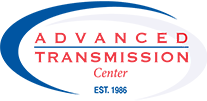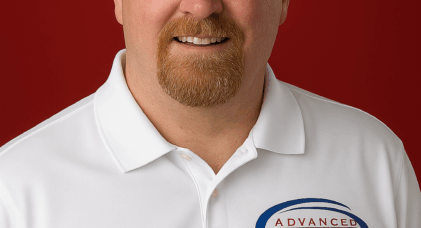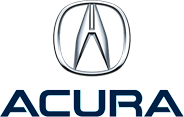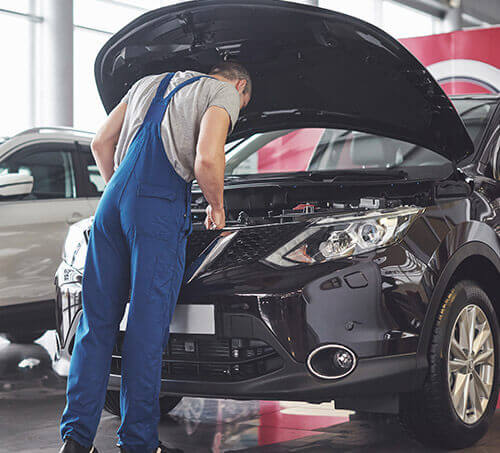If you drive in the Denver Metro area – including suburbs like Lakewood and Westminster – your vehicle’s transmission is under extra stress compared with someone driving at lower elevation and on flat ground. Between high elevation, steep grades, frequent mountain trips, and variable terrain, you’ll want to know how to protect your transmission and avoid costly repairs down the road. Here’s a tailored breakdown of what your Advanced Transmission Center team often sees and what you can do about it.
1. Elevation = thinner air = more work for your drivetrain
At high elevation, the air is thinner – that means less oxygen for the engine, reduced cooling capacity, and often greater load on the transmission. For example:
- The rule of thumb: engine power drops roughly 3% for every 1,000 ft of elevation gain.
- In the Denver region – at roughly 5,280 ft (“mile high”) – you’re already seeing power levels that would typically correspond to much higher stresses on your driveline – Less engine power means your transmission has to “work harder” to get the wheels turning at the same rate – especially when climbing steep grades, towing, or accelerating from a stop.
2. Steep grades & mountain terrain = continual transmission load
Denver’s location against the Front Range means you’re more likely to encounter terrain that puts extra load on your transmission:
- When you climb hills or mountain roads (for example I-70 up to the Eisenhower Tunnel, US-285, or other routes in the foothills) the transmission and engine combo must generate more torque and hold gears longer.
As explained:
“Driving up steep grades or extended driving at high elevation will definitely put more strain on your vehicle, especially the engine and transmission.” - On the downhill side, you may rely on transmissions (or low gears) to help control speed – if you’re always riding brakes, you’re overheating them and risking brake failure. As per your own shop’s advice:
“Use low gears… on both uphill and downhill driving … That also protects your transmission from being overstressed.” - Long commutes, frequent starts/stops, or towing equipment to the mountains add further load. A transmission isn’t just shifting – it’s managing heat, fluid pressure, gear shifts under elevated load, and more.
3. What that “extra stress” means in real terms
Because of the above factors, here’s how your transmission may suffer or age faster in the Denver/Front Range environment:
- Fluid degradation: Higher load, more heat, and thinner air = your transmission fluid will degrade faster. Heat build-up weakens lubrication, leading to oxidation, varnishing and burnt fluid.
- Overheating risk: Elevation affects cooling. Thinner air means less heat dissipation. Combine this with steep climbs or heavy loads and the transmission will run hotter than it would in flat terrain. Remember, transmissions don’t like heat!
- Gear-shift stress: Constant uphill/downhill, load changes (towing), and elevation shifts means the transmission is shifting beyond “normal” usage more often.
- Shortened lifespan / early wear: Just as the owner’s manual notes and studies show, higher altitude and heavy grade conditions reduce the “normal” life expectancy of driveline components.
4. What you can do to protect your transmission – local tips
Given the unique Colorado environment, here are actionable tips for drivers around Lakewood, Westminster, Boulder, and the Front Range:
- Schedule fluid and filter services more proactively: If your vehicle has high miles (100k+), or if you tow/have mountain trips, bring it in for a transmission fluid & driveline check.
- Use low gears when climbing/descending: Don’t rely solely on automatic shifting. Especially on mountain roads, switch to lower gears to reduce strain.
- Avoid heavy loads without checking your system: If you are towing trailers, winter gear, or heavy loads into the mountains, the extra weight plus elevation adds up.
- Let your vehicle warm up and cool down appropriately: On cold mornings or long downhill runs, give your drivetrain a chance to come up to temperature. Avoid stomping on the throttle immediately.
- Keep your cooling system up to date: The transmission shares heat-load with engine systems. Making sure your radiator, hoses, and cooling fans are in good shape helps.
- Inspect for leaks/seals routinely: Watch for signs of fluid leakage under the vehicle (especially after mountain trips). Early leak detection = less damage down the road.
5. Why choosing the right shop matters
When you drive in an environment like ours, it’s not just about “transmission repair” – it’s about specialization for high-elevation, high-load, varied terrain conditions. Here’s what to look for:
- A shop that understands mountain driving and tailors maintenance accordingly.
- Use of quality fluids and correct specifications (these vary by vehicle and conditions).
- Diagnostic capacity to check for heat stress, fluid condition, gear-shift patterns.
- Clear communication: let you know what you can do as a driver.
- In our case at Advanced Transmission Center in Lakewood & Westminster, CO: we focus on transmissions, transfer cases and differentials – all critical for mountain/interstate/suburban/commuter mix driving.
6. Final takeaway & next step
Driving around Denver and the Front Range is tough on transmissions – the elevation, terrain, grades, loads and weather all combine to put extra demands on your vehicle’s driveline. By understanding the challenge, applying smart driver-habits, and working with a qualified local shop, you can extend the life of your transmission, avoid unexpected repair bills, and enjoy smoother, more reliable driving.
Next step: Bring your vehicle into our Lakewood or Westminster location for a comprehensive transmission & driveline inspection. With our free TrueTest inspection, we’ll check fluid condition, transmission health, load history, and advise you on any maintenance based on your driving habits and terrain.
Drive safe — and let’s keep those gears turning smoothly in Colorado terrain.
With over 10 years of hands-on experience in the automotive industry, including serving as General Manager for a high-volume transmission shop, Tom Christy brings deep operational and technical expertise to every facet of auto repair and service management. Having overseen multi-million-dollar operations, led national teams, and improved shop performance across sales, staffing, and customer service, Tom has a proven track record of growing revenue while reducing costs. Tom's real-world experience in transmission diagnostics, repair workflows, and customer satisfaction makes them a trusted voice in the field.



 Free Customer Towing Service
Free Customer Towing Service  Free TrueTest™ Inspection
Free TrueTest™ Inspection  Fast Transmission Services
Fast Transmission Services  Comprehensive Warranty in Denver
Comprehensive Warranty in Denver 

























